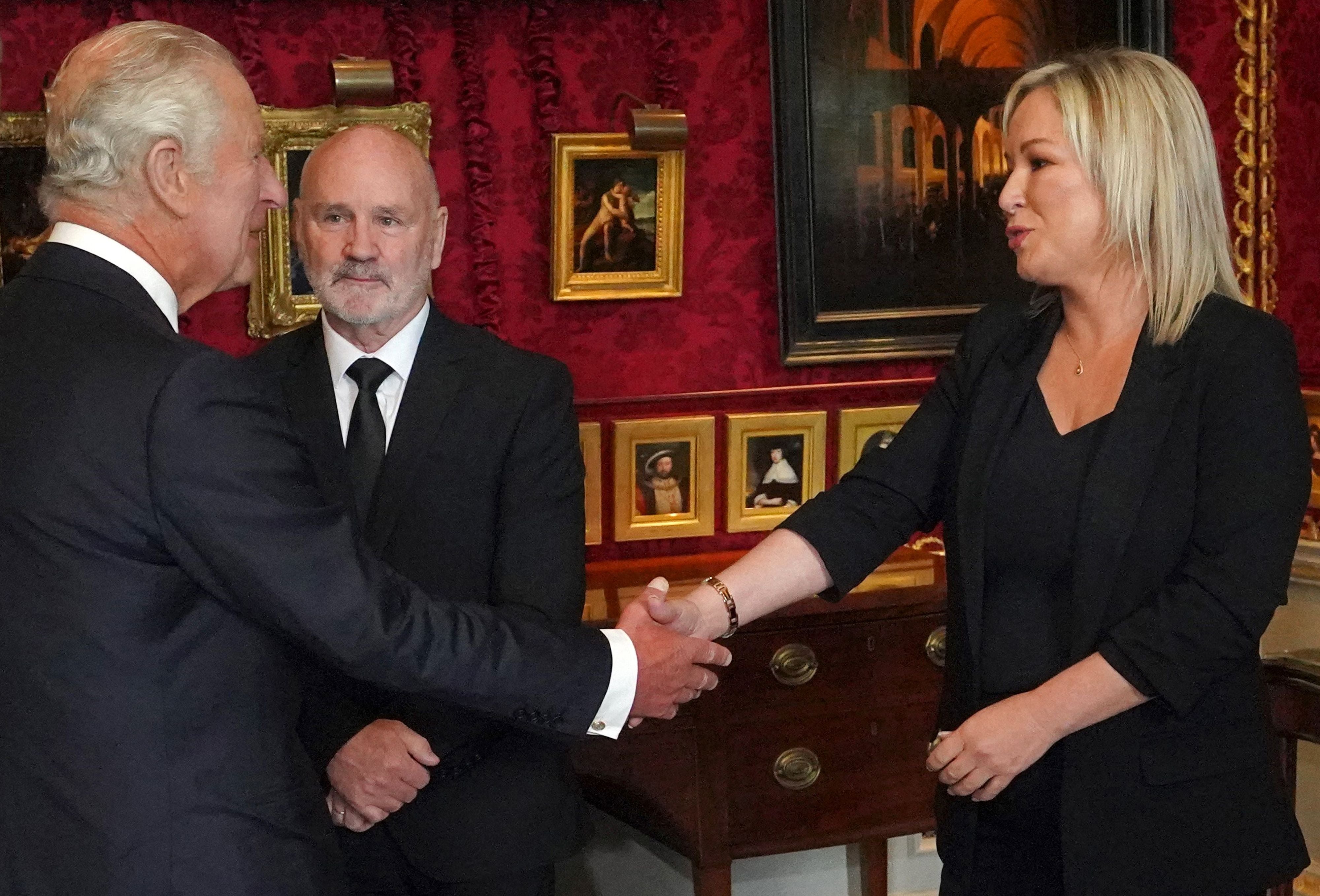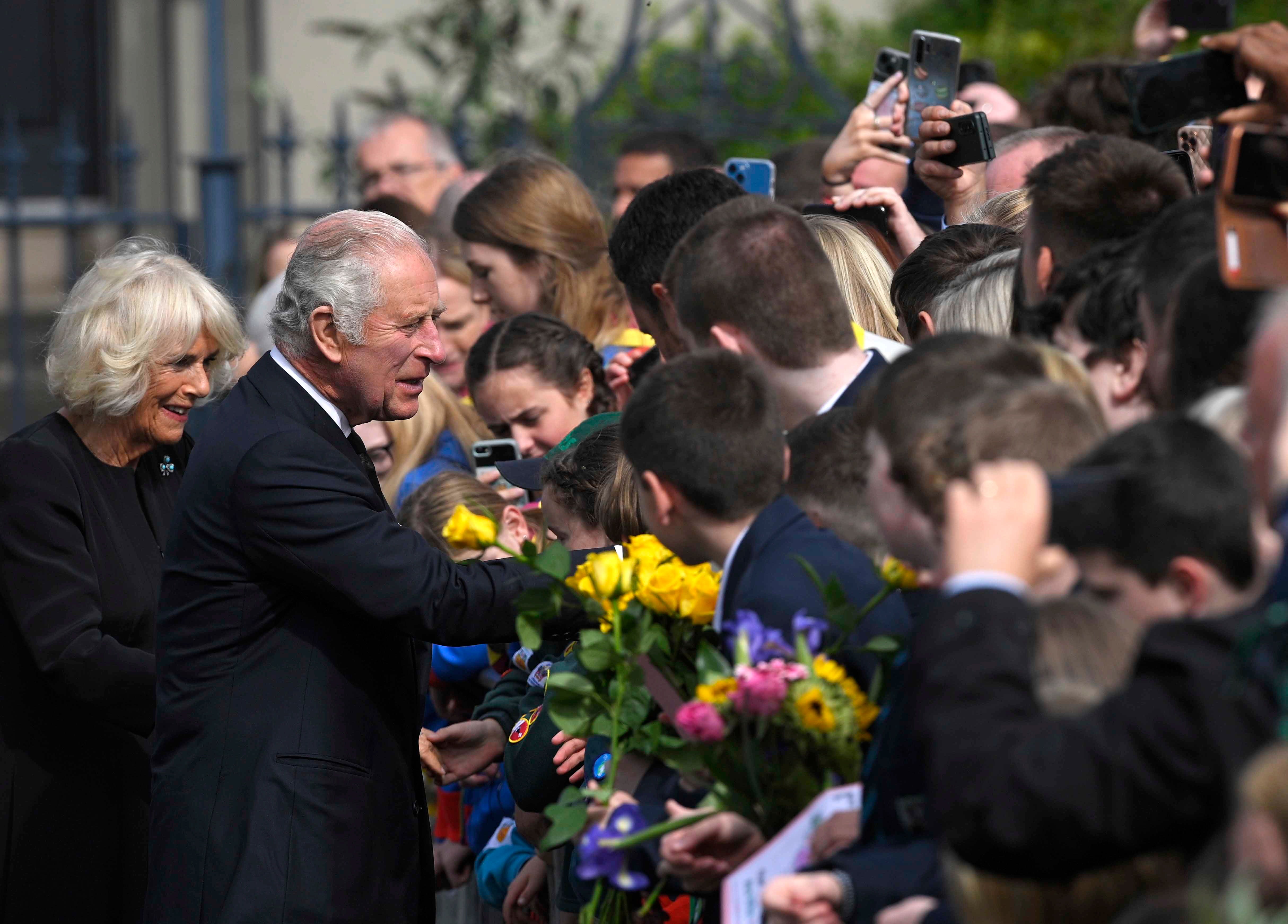King Charles’s soft power stretched to its limits in Northern Ireland
Remarkable scenes in Belfast keep hopes alive, but the monarchy’s influence can only go so far in Northern Ireland


It is all too easy to contemplate the affairs of Northern Ireland and despair. It was the default reaction of most British public figures for many decades, until John Major in the 1990s found the situation morally and financially abhorrent. Together with the Taoiseach of the time, Albert Reynolds, he launched the peace process. There were disappointments, setbacks and walkouts – but also progress.
In due course, the talks brought forth the Belfast Good Friday Agreement, periods of surprisingly harmonious power-sharing government, and peace. Ian Paisley and Martin McGuinness formed the most unlikely political partnership in the modern history of these islands. Though currently suspended, as collateral damage from Brexit, cross-community power-sharing structures remain in place. There is still hope.
It takes a moment to appreciate the remarkable nature of the King’s reception in the stately rooms of Hillsborough Castle. Not so long ago, the idea that a British monarch and consort could exchange small talk with the political representatives of armed Irish republicanism would have been unthinkable. Nor would words of Irish have been spoken at such an official event, and certainly not by a former member of the Provisional IRA, Alex Maskey, now the speaker of the Northern Ireland Assembly. A half-century or so ago, Maskey was interned without trial by authorities acting in the name of the Queen; now, he delivers condolences on her death to her son.

Catholics generally were rarely entertained during the long Orange ascendancy. The leader of Sinn Fein, committed to the end of British sovereignty in the north of Ireland, is now first minister and will attend an audience with a king she doesn’t regard as legitimate. King Charles III lost his close mentor Lord Mountbatten to the Troubles, as well as many of the armed forces of which he is now head. As Charles noted obliquely, his own family has felt the same sorrows as many others.
He also pledged to “seek the welfare” of all Northern Ireland's people. The Queen had “never ceased to pray for the best of times for this place and its people” and was aware of her position in bringing together divided communities “whom history had separated”, Charles said.
“My mother felt deeply, I know, the significance of the role she herself played in bringing together those whom history had separated, and in extending a hand to make possible the healing of long-held hurts.” Later, he shook hands with Irish president Michael D Higgins following a memorial service at St Anne’s Cathedral in Belfast.
Not much can be drawn from short encounters such as this week’s, yet the King shows every sign he is closely following the example of his mother as supporter and advocate of the peace process. Her visit to Ireland in 2011 is often cited as a high point of her reign. She spoke a few words of Irish, went to the Catholic cathedral and bowed to the memorial to Republican rebels. Charles and Camilla followed it up with their own initiatives such as their state visit to Ireland in March.
By all accounts Charles will use his influence and prestige to nudge the parties towards progress. At times in the past, his ancestors have tried to convene meetings to get politicians to settle their differences – a constitutionally hazardous venture, even in London.
However, there is nothing the King himself can do in practice to settle the future of the EU-UK Northern Ireland Protocol, or the status of the Irish language in the province. If trouble does return to Northern Ireland, and its place in the UK is further loosened, all he can do is try to promote reconciliation and peace. In the moist-eyed remembrance of Elizabeth II’s brave and historic personal diplomacy, we ought not overestimate its power.



Join our commenting forum
Join thought-provoking conversations, follow other Independent readers and see their replies
Comments